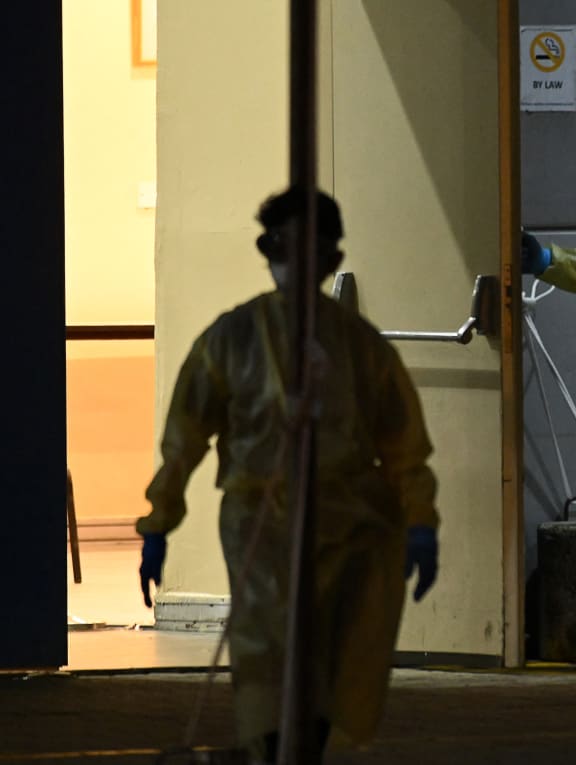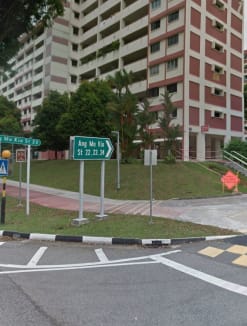Unvaccinated Covid-19 patients take up disproportionate amount of medical resources, put strain on healthcare system: Rahayu Mahzam

Medical personnel waiting for Covid-19 patients to be transferred to a hospital.
Two-thirds of patients admitted into ICUs following the surge of infections from the Delta coronavirus strain last year were unvaccinated or partially unvaccinated against Covid-19, said Parliamentary Secretary for MOH, Ms Rahayu Mahzam.
She added that this put great pressure on the healthcare system at the peak of the Delta wave here between October and November last year.
Ms Rahayu was responding to Ms Hazel Poa, a Non-Constituency Member of Parliament from the Progress Singapore Party, who filed an adjournment motion and questioned the need for infection controls tied to people's vaccination status, which limit the activities and movements of unvaccinated persons.
Ms Poa argued that although unvaccinated people are more prone to serious illness, they should be allowed to choose as they bear the brunt of their decision to not be vaccinated.
“What is the justification for preventing the unvaccinated from returning to their workplace? It is not for fear of infecting others because vaccination does not stop the transmission of Covid-19. The risk is therefore mainly to themselves, not others,” she said.
Ms Poa added that the ban on unvaccinated persons returning to the workplace and risking their livelihoods is “too harsh” even though the Government has asserted that every effort will be made to enable them to work from home.
“This is not always practical for every job affected. The new measure is essentially a licence to terminate.”
Ms Rahayu said the recent months have shown that vaccine-related controls have enabled Singapore to reopen safely and in a calibrated manner while minimising the risk of hospital admissions to preserve healthcare capacity.
“We eased (these measures) for those who are fully vaccinated, rather than hold everyone back in order to reduce risk to the unvaccinated. Fully vaccinated persons have good protection against the virus and are at lower risk of becoming dangerously ill if infected with Covid-19.
“Unvaccinated individuals, on the other hand, need to be more prudent in interacting with larger groups of people especially in mask-off settings, which are higher risk. Hence, the strict measures will continue to apply to them,” she said.





